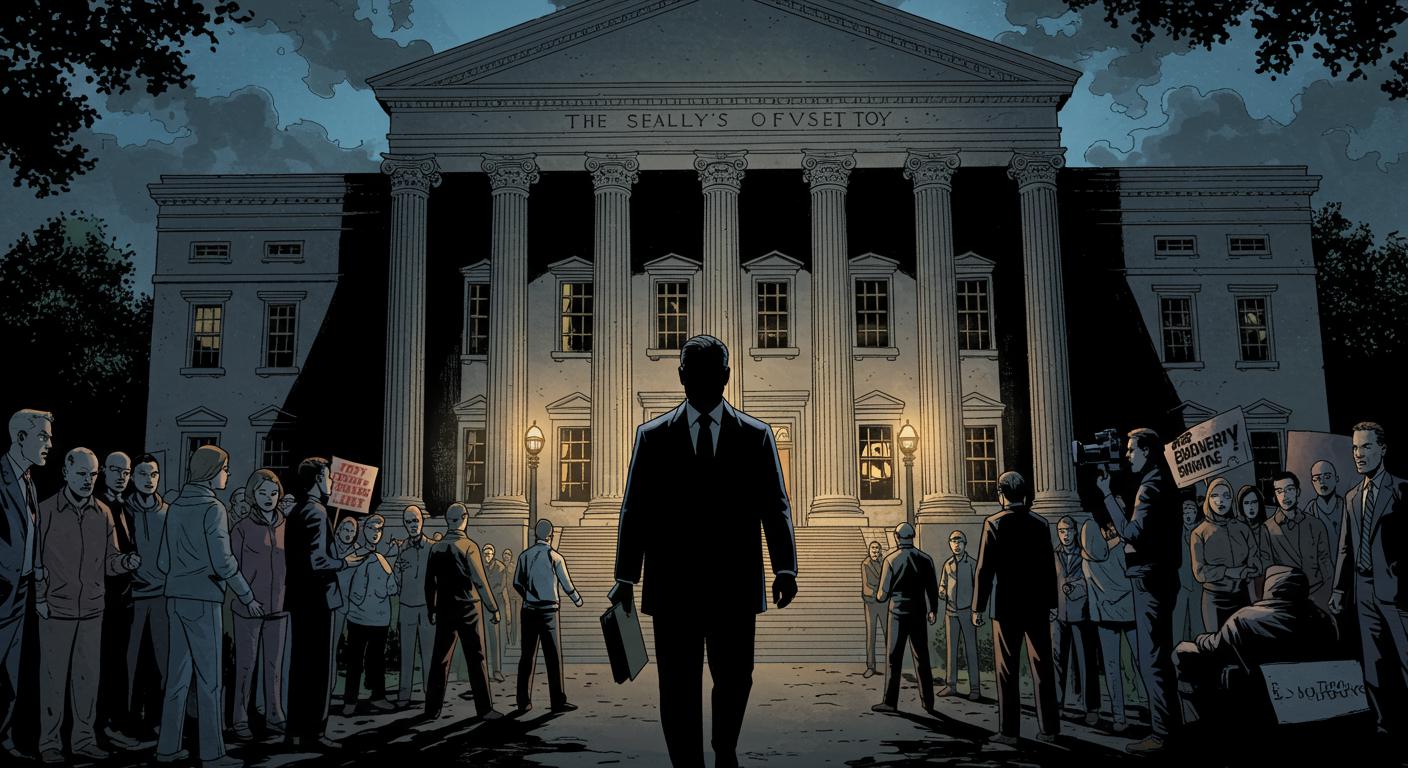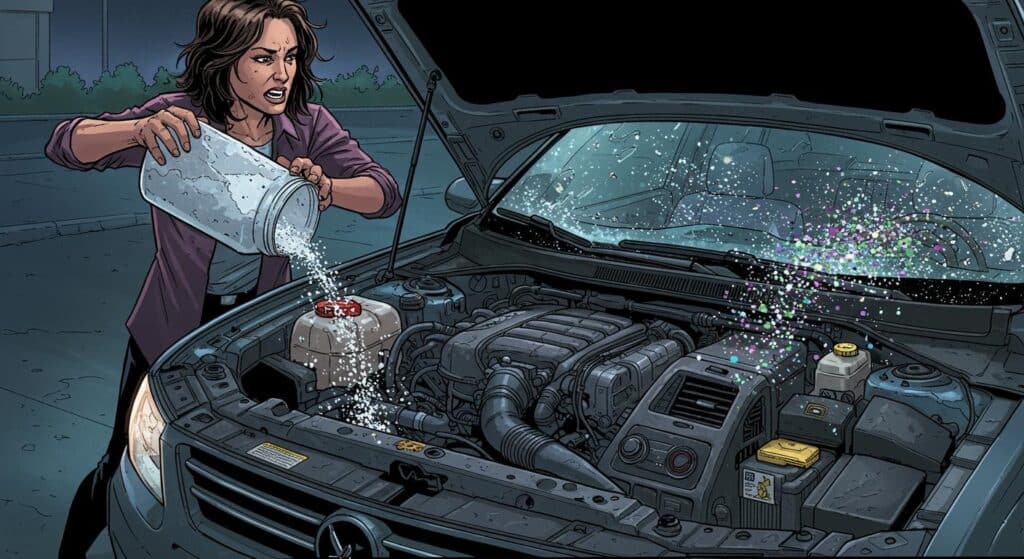There’s no shortage of stories that make you pause and reconsider the confidence we sometimes place in red tape and “safeguards.” But occasionally, a tale surfaces that isn’t just odd or eyebrow-raising—it’s unsettling in a way that leaves you questioning the entire system. Such is the case unraveling this week out of Pennsylvania, where well-meaning celebrations of new parenthood took a disturbing turn, as Britannia Daily documents.
A Viral Video, and the Truth Beneath
It began innocently, as so many viral stories do, with a widely-shared video: Brandon Keith Mitchell and Logan Riley presenting their surrogacy journey and newborn son for what appeared to be the online world’s applause. According to Britannia Daily, the video gathered serious momentum when it was reposted by an Irish activist—within a day, scrutiny landed on the identity of one celebrant. Reporting cited by the outlet revealed Mitchell is a registered Tier 1 sex offender, a detail that rapidly transformed the tenor of the discussion from one of “love wins” to urgent safeguarding concern.
Britannia Daily, referencing records from local authorities, notes that Mitchell’s past is hardly ambiguous. Back in 2016, he was convicted while working as a high school chemistry teacher after exchanging an astonishing volume of text messages with a 16-year-old student; he solicited explicit photos, sent his own, and stored hundreds of indecent videos involving the minor. The District Attorney’s Office records, as presented by the outlet, confirm felony charges like possession of child pornography and endangering the welfare of children. Mitchell pleaded guilty and, in an unexpected twist, served only a brief stint before being granted parole.
The Surrogacy Shortcut
The revelations don’t stop there. In a detail highlighted by Britannia Daily, Pennsylvania’s adoption laws specifically block sex offenders from adopting or fostering children, relying on extensive vetting and background checks to do so. However, legal arrangements around gestational surrogacy play by virtually different rules. The outlet explains that with a pre-birth parentage order, intended parents—no matter their criminal record—secure their names on the birth certificate before the child is born, sidestepping the screening process mandated by adoption statutes.
Britannia Daily describes how Pennsylvania’s statutes fail to automatically restrict convicted sex offenders from acquiring parental rights via surrogacy. Authorities told the outlet, “The state does not automatically forbid individuals convicted of sex crimes from having children, gaining custody, or exercising parental rights.” No required home visits, no interviews, no system to ensure the surrogate or agency learns the full story—unless the participants choose to disclose it. Whether or not any party outside the couple was formally made aware of Mitchell’s conviction remains, as the article notes, an open question.
Glossing Over the Past
The image painted for the world by Mitchell and Riley left out these essential facts. As Britannia Daily points out, their GoFundMe page, used to crowdfund their surrogacy process, introduced the couple only by their professions and dreams of starting a family. Nowhere did it mention a criminal past, sex offender registry, or parole history. The campaign was pure optimism: Riley, a second-grade teacher; Mitchell, now working in pharmaceuticals; both depicted as ordinary, upstanding prospective parents. The omission is hard to ignore, particularly given Mitchell was forced out of teaching directly due to his criminal activities, as evidenced by court and employment records reported by the outlet.
Safeguarding: A Patchwork with Gaping Holes
Britannia Daily explores just how much more rigorous adoption screening is in comparison to surrogacy arrangements. Adoption entails home studies, interviews, and a forensic approach to the backgrounds of would-be parents. Surrogacy in many US states? Not so much. Advocacy group Surrogacy Concern’s Helen Gibson, quoted in the source article, draws attention to what she calls a “virtually nonexistent” vetting process for commissioning parents in surrogacy. Gibson further asserts this was not an isolated oversight—her group has tracked other instances of sex offenders gaining custody of children via similar means.
It seems the safeguards that have evolved in the adoption world were never mapped over to surrogacy, creating what amounts to two parallel universes of child placement—the heavily-guarded and the almost entirely unpatrolled. The contrast is as stark as it is perplexing.
Where Policy Fails, Children Pay
Summing up reporting by Britannia Daily, the story lays bare a legal and ethical contradiction that feels almost designed to be exploited: for all Pennsylvania’s adoption rules and child-protection routines, commercial surrogacy is left to operate on a handshake and paperwork, with no formal mechanism to flag or prevent a convicted abuser from acquiring full parental rights.
The outlet also notes mounting criticism of pre-birth parentage orders, which, although intended to provide certainty for intended parents, simultaneously short-circuit all the built-in safeguards designed to catch exactly this kind of risk. The law’s intention may have been to protect the interests of hopeful parents, but as critics cited by the outlet remind us, reforms must be substantive, not symbolic, and truly child-centered.
The Strangest—and Saddest—Part
Among the odd stories that filter through my daily dig—escaped snakes in convenience stores, Elvis sightings at farmer’s markets—this one’s power comes from its bleak normalcy. There are no eccentric characters or comical details to soften things. Instead, what’s left is a quietly troubling legal gap wide enough for a known predator to slip through, becoming a parent not because he’d earned extra trust, but because no one was required to ask.
Authorities are now reportedly considering their response, with calls for immediate investigation and systemic reform echoing through advocacy circles and beyond. The most startling thing, perhaps, is not what happened, but how easily it happened, and how little policy stood in the way. How many more loopholes like this one are hiding in plain sight—waiting, unchallenged, for the wrong person with the right paperwork?







